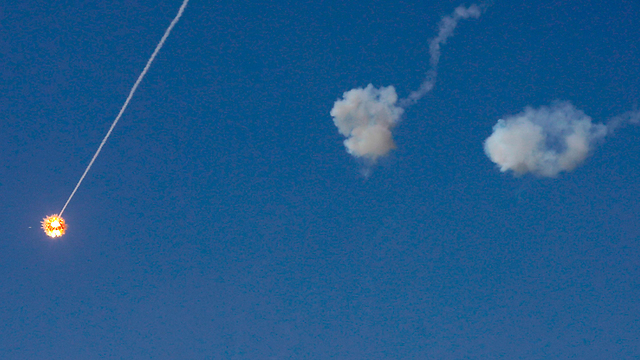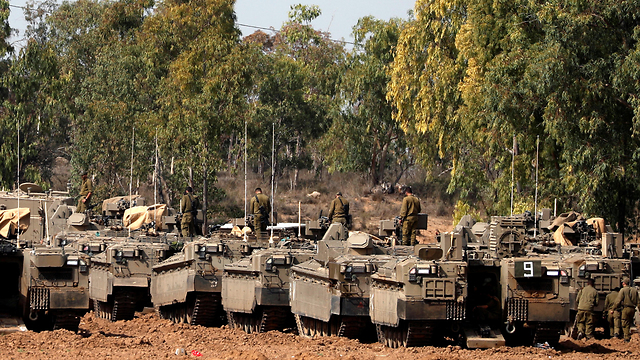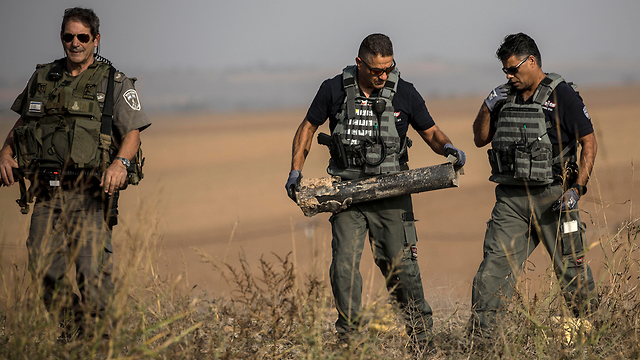Islamic Jihad's war of attrition
Analysis: The small terror group got over its shock at the death of Abu al-Ata and decided that its best option was to wear down Israel by disrupting the lives of its citizens, but the truncated round of violence also allowed Israel to reclaim some of its deterrence
After several meetings that must have included some degree of consultation with the heads of the organization in Damascus, the leadership decided that its best strategy was a war of attrition against Israel.
From the various rocket barrages Israel suffered since Tuesday morning, it became clear that instead of wasting its munitions in attacks that might lead to casualties within the organization, Islamic Jihad opted to wear Israel down by forcing it to shutter its education system and disrupting the economy in at least half of the country.
This did not just mean the loss of billions in revenue, but it also undermined the sense of security, morale and mental strength of Israel's citizens in an 80km radius from the Gaza Strip, including those in the metropolitan area in central Israel.
By attacking in this manner, Islamic Jihad was trying to drag Hamas into the conflict, because it knew that the longer the confrontation lasts, the more likely the IDF was to make a mistake, accidently striking Hamas personnel or facilities, forcing it to join the fight despite pleas from Egypt and threats from Qatar.
Another aim of this war of attrition was to force the IDF to expend resources quelling the small but steady attacks on the southern part of Israel, and to a lesser extent, the center.
Nonetheless, Islamic Jihad had not abandoned its plan for a grand achievement against Israel, one that it could use as a "victory picture" for years to come.
The group aimed to strike Western Jerusalem and the surrounding areas in an attack that had a religious flavor to it, as befits a proper extreme Islamic organization whose military branch is called "Liwa al-Quds" (the Jerusalem Brigade)
This is apparently why most of the attacks on Wednesday, barring those against the communities bordering Gaza, were aimed in the direction of the capital and passed over central Israel.
There is no doubt that the terror organizations in Gaza have studied Israel carefully over the years and realized that the center of the country was well protected by a sophisticated system meant to intercept any missile headed its way - and at the tip of the spear sat Iron Dome.
Islamic Jihad's strategy of attrition and the measured attacks on Israel stemmed from the fact that although the organization has thousands of rockets at its disposal, only very few of them are long range, and so it tried to use its munitions lightly so as to conduct a lengthy campaign.
Both the IDF and the Shin Bet security service were aware of this strategy and were both working to shorten the round of violence and the accompanying disruption to the everyday lives of Israeli citizens.
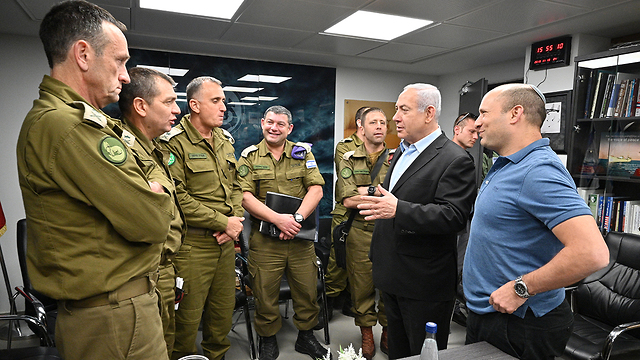
The Shin Bet and IDF had four strategic options are at their disposal:
1. Hunting any enemy squads at or en route to rocket launch pads. There was unprecedented success in foiling Jihad's rocket squads
2. Hitting Islamic Jihad's military infrastructure, including rocket launchers, launch pads, rocket storage and various compounds
3. Widespread deployment of anti-missile systems although the country
4. Intensive intelligence-gathering operation about Islamic Jihad's goals during the conflict
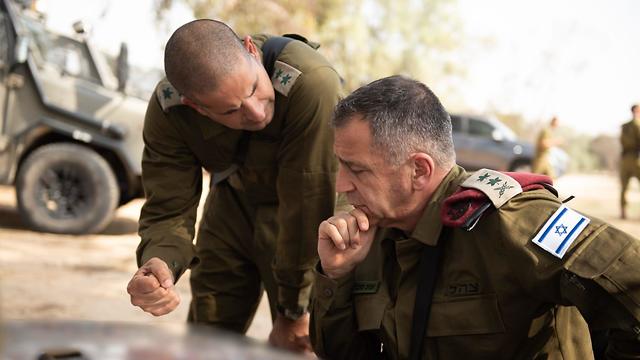
The IDF was extremely careful in its efforts not to harm either any innocents or Hamas compounds or symbols of its rule over the Strip - not for humanitarian reasons, but rather due to a strategic decision not to touch the organization.
It worked and Hamas did stay out of it - not because it suddenly became pro-Zionist, but because Hamas leaders Ismail Haniyeh and Yahya Sinwar didn't want to abandon the agreement they made with Israel, the money they get from Qatar, the American hospital being built in the Strip, or the chance for a Gaza seaport, simply to avenge the death of a reckless Islamic Jihad commander.
Furthermore, Sinwar knew better than anyone how challenging Abu al-Ata was to deal with, and how much he hampered Hamas' ability to govern the Strip effectively.
Moreover, Egypt and UN Special Coordinator Nickolay Mladenov were pressuring both Hamas and Islamic Jihad to bring an end to the violence before the situation escalated and Israel was forced to enter Gaza.
It's no coincidence that images of the massive artillery force Israel was amassing on the Gaza border were published Wednesday morning.
These forces were meant to deter any "surprises" that Islamic Jihad was planning to spring on IDF ground troops.
But the mere existence of these soldiers and their promotion in the public eye was meant to remind Hamas that if it did make the mistake of joining the fight, Israel would indeed have no choice but to initiate a campaign in Gaza.
It seems that Islamic Jihad's sponsor Iran also stayed out of the conflict, and the group was more than aware Hamas isn't too eager to weigh in one way or the other either.
But Islamic Jihad is very sensitive when it comes to attacks on its leadership and functional hierarchy, so the elimination of Abu al-Ata was a harsh blow, perhaps even more than Israel realizes.
Israeli must acknowledge that the enemies of the State of Israel - regardless of what it does - have not given up on the desire to wipe it off the map, and that they too have talented, motivated and dangerous people.
And if normal service was suspended for a few days, it was a perfectly reasonable price to pay for the restoration of deterrence that gives Israel longer and better periods of calm between rounds of fighting that are yet to come.











